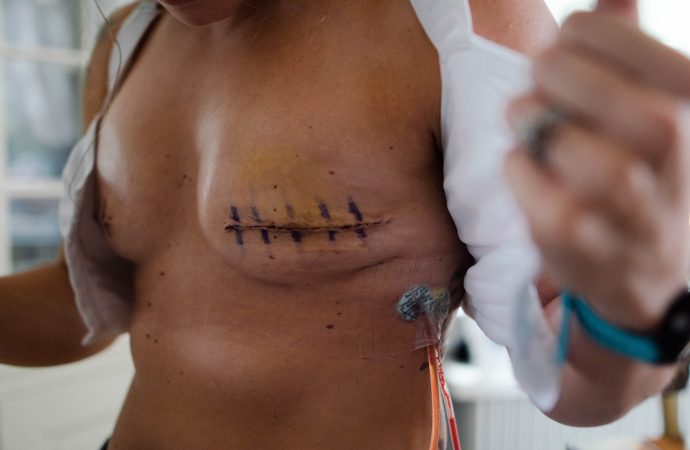Breast cancer is a pervasive and devastating disease that affects millions of women worldwide. Early detection is crucial for improving outcomes, but it can be challenging, as breast cancer can sometimes go undetected by human eyes. However, with the advent of artificial intelligence (A.I.), there is new hope in the fight against breast cancer. A
Breast cancer is a pervasive and devastating disease that affects millions of women worldwide. Early detection is crucial for improving outcomes, but it can be challenging, as breast cancer can sometimes go undetected by human eyes. However, with the advent of artificial intelligence (A.I.), there is new hope in the fight against breast cancer.
A groundbreaking study published in a leading medical journal has revealed that A.I. has the potential to outperform human doctors in detecting breast cancer, even in cases where it is missed by traditional screening methods. This breakthrough has opened up new possibilities for early diagnosis and treatment, ultimately saving lives.
The power of A.I. lies in its ability to analyze vast amounts of data with remarkable speed and accuracy. A.I. algorithms can be trained on large datasets of mammograms, identifying patterns and anomalies that may not be discernible to the human eye. This allows for the detection of breast cancer at its earliest stages, when treatment options are most effective.
One of the key advantages of using A.I. in breast cancer detection is its ability to minimize false negatives and false positives. False negatives occur when breast cancer is present but is missed by the screening, while false positives occur when a benign finding is flagged as cancerous. These false results can lead to unnecessary anxiety and medical interventions. A.I. has shown promise in reducing both false negatives and false positives, leading to more accurate and reliable breast cancer screenings.
Moreover, A.I. has the potential to improve access to breast cancer screening, especially in underserved communities. In many regions, access to specialized radiologists or advanced imaging technologies may be limited. A.I.-based screening tools can be used in remote or resource-constrained areas, bringing the benefits of early detection to those who may not have had access otherwise.
However, as with any new technology, there are ethical considerations that need to be addressed. Privacy and security of patient data, transparency in how A.I. algorithms work, and the need for human oversight in the decision-making process are crucial aspects that must be carefully considered in the use of A.I. for breast cancer detection.
While A.I. holds immense promise in the field of breast cancer detection, it is not meant to replace human doctors. Rather, it is a powerful tool that can augment and enhance the capabilities of healthcare professionals. Collaborations between A.I. and human doctors can lead to more accurate and timely diagnoses, ultimately improving patient outcomes.
In conclusion, the use of A.I. in detecting breast cancer missed by doctors is a groundbreaking advancement in the field of breast cancer screening. With its ability to analyze vast amounts of data, reduce false results, and improve access to screening, A.I. has the potential to save lives and revolutionize breast cancer detection. However, ethical considerations must be carefully addressed to ensure the responsible and effective use of A.I. in healthcare. The future of breast cancer screening looks promising with the unleashed power of A.I. as a valuable tool in the fight against breast cancer.

















Leave a Comment
Your email address will not be published. Required fields are marked with *